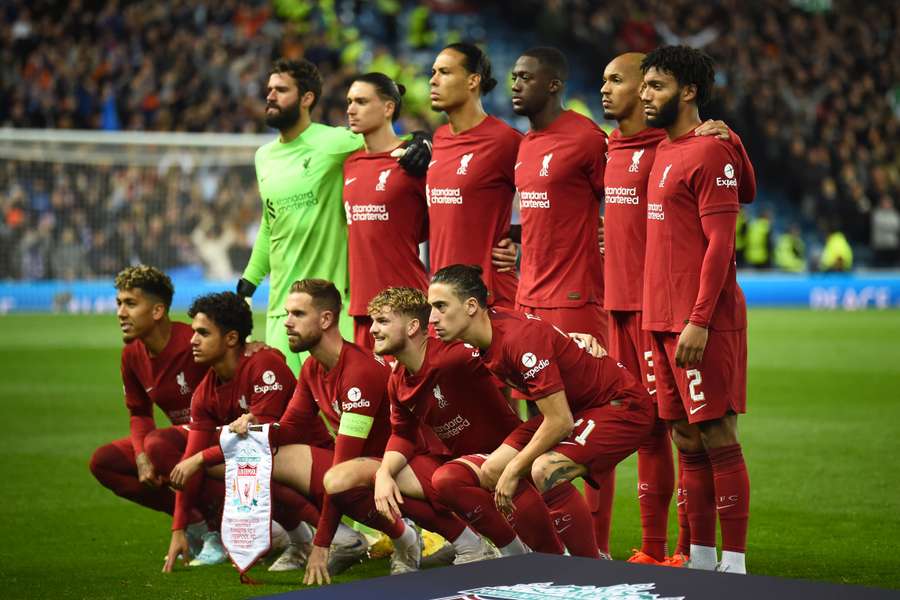The factors behind Liverpool's dramatic decline compared to City

The landscape has changed this season, though, with Liverpool dropping away to a dramatic degree while City are maintaining their ridiculous performance levels.
When the two teams meet on Sunday, an encounter that used to be so tight now has City as the clear favourites.
Pep Guardiola's side haven't lost a game all season, while Jurgen Klopp's Reds have made their worst start to a campaign in 10 years.
A number of factors come into play when examining why this is the case, with this piece looking at how such a dramatic shift in English football has come about.
The transfer market
It's no secret that Liverpool have less to spend than City, however the way they go about their business with the money they do have has been hit-and-miss.
The best sides in the world keep their squads fresh, always adding quality players where they can in the positions they need. The Reds have struggled to do that, and now a number of key players like Trent Alexander-Arnold (24), Virgil van Dijk (31), Jordan Henderson (32) and Mohamed Salah (30) look fatigued and their performance levels have dropped as a result.
Senegalese forward Sadio Mane (30) was let go for just £28.8m (€33m), leaving a huge hole in their attack.
Darwin Nunez (23) was brought in to replace him, costing the Reds £85m (€98m), but his start to the season has been poor. Despite this appearing to blow the budget, rumours of a big money move for Jude Bellingham (19) persisted all summer.
While they haven't necessarily signed bad players, they weren't the immediate additions that were required, and it has shown since the start of the season. Serious competition for Alexander-Arnold was required at right-back and Liverpool signed Calvin Ramsay (19) from Aberdeen.
Similarly, another midfielder of the same quality as Thiago Alcantara (31) and Fabinho (28) has been a clear need for some time, with the likes of Alex Oxlade-Chamberlain (29) and Naby Keita (27) struggling with niggling injuries. Instead, they brought in Fabio Carvalho (20) from Fulham and loaned in Arthur Melo (26) on deadline day, who has so far played just 14 minutes for the first team.
By contrast, City strengthened with quality players in the key positions they needed despite letting go of a number of valuable first-team members.
Raheem Sterling (27), Oleksandr Zinchenko (25) and Gabriel Jesus (25) were all allowed to leave, yet it appears to have had very little effect on Guardiola's side. Fernandinho (37) was also let go when his contract expired.
To fill in the gaps made by those departures, they signed Julian Alvarez (22) - actually bought in January - alongside Kalvin Phillips (26) and Sergio Gomez (22).
When Aymeric Laporte (28) picked up a long-term injury, they reacted by bringing in Manuel Akanji (27).
Of course, the main bit of business was the signing of Erling Haaland (22). The Norwegian is arguably the best player in the world at the moment, and he only cost £54m (€62m), far less than what Liverpool paid for Nunez.
These key bits of business highlight how much further ahead City are when it comes to recruitment, and the room for improvement at Liverpool.
Physical and psychological fatigue
Liverpool played in every club match they possibly could last season, reaching three finals and playing a total of 63 games.
They lost just four times all season, twice in the league and twice in the Champions League - one of those being a 1-0 defeat in the final to Real Madrid. Couple that with losing out on the Premier League title to City on the final day, and there is bound to be a big impact on the squad both physically and psychologically.
Coming so close to an unprecedented quadruple - after winning the EFL and FA Cup - only to fail at the final two hurdles will have damaged the morale of the squad. Playing so many games over the course of a year will have also left them fatigued.
Due to the awkward timing of the World Cup this year, the season started earlier and has had a lot of games crammed into the opening months.
Perhaps this has left the Liverpool squad needing a longer break than they were given, impacting their performance levels. If the lack of quality squad depth is then factored in, as well as international matches over the summer, the majority of the side will have essentially had no break from high-intensity football for the whole year.
Managers in charge
Much has been made of Klopp's 'seventh season curse', and it's almost freakish as to how much his Liverpool side has declined going into his seventh season at Anfield.
While it's obviously just a coincidence, the idea does have some legs. Mainz were relegated in the German's seventh season in charge, and Dortmund spent the majority of the season in the relegation zone before climbing the table to finish seventh in the Bundesliga after Klopp had spent the same amount of time there.
In his press conferences, the lively Klopp seen over the last few years has started to fade and has been replaced by an almost defeated figure. Excuses for not winning matches and snapping at reporters haven't helped, and it looks to have transferred onto the pitch.
Guardiola, on the other hand, continues to get the best out of his players even if they aren't necessarily starring in the team. For example, Akanji has had a superb start to his City career despite not impressing at Dortmund last season. The likes of Nathan Ake (27) and Jack Grealish (27) have also improved immensely and have become reliable members of the first team.
Such a contrast between the two coaches and their sides shows how things have changed over the last few months, and Liverpool need a win on Sunday if they are to put a serious halt their rapid decline.

